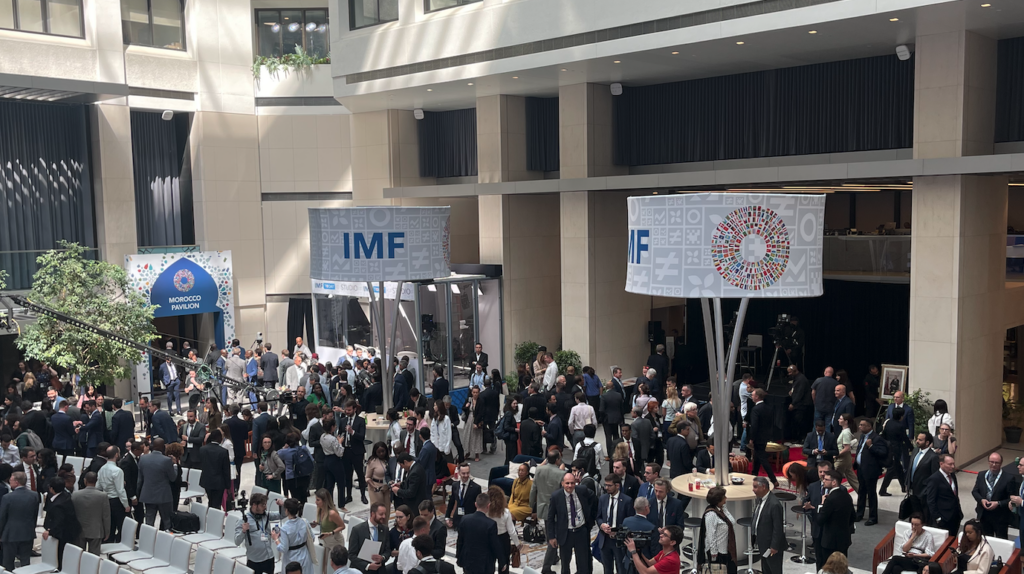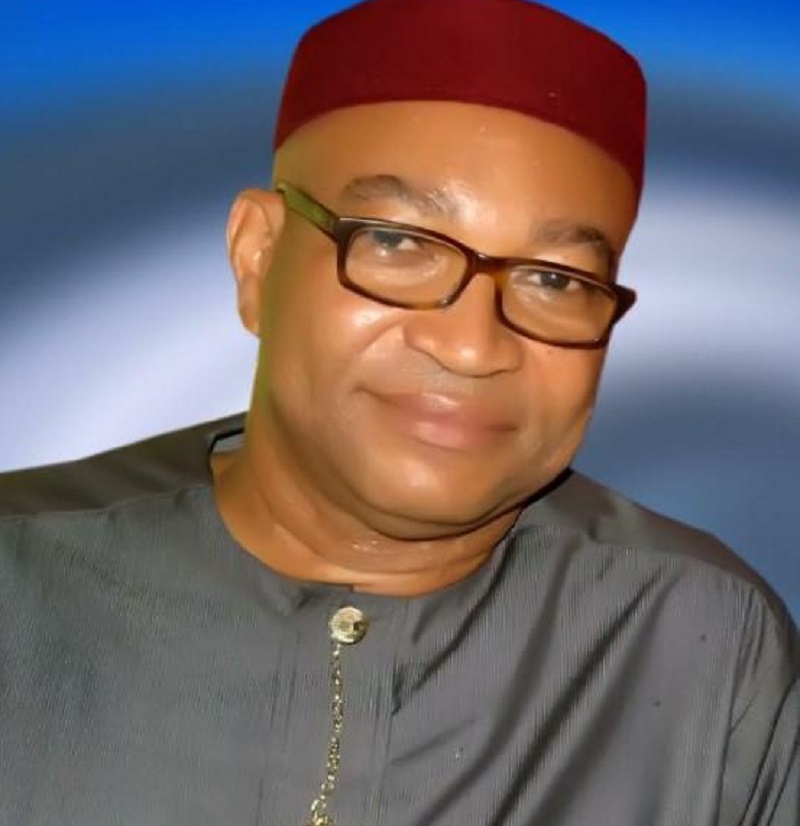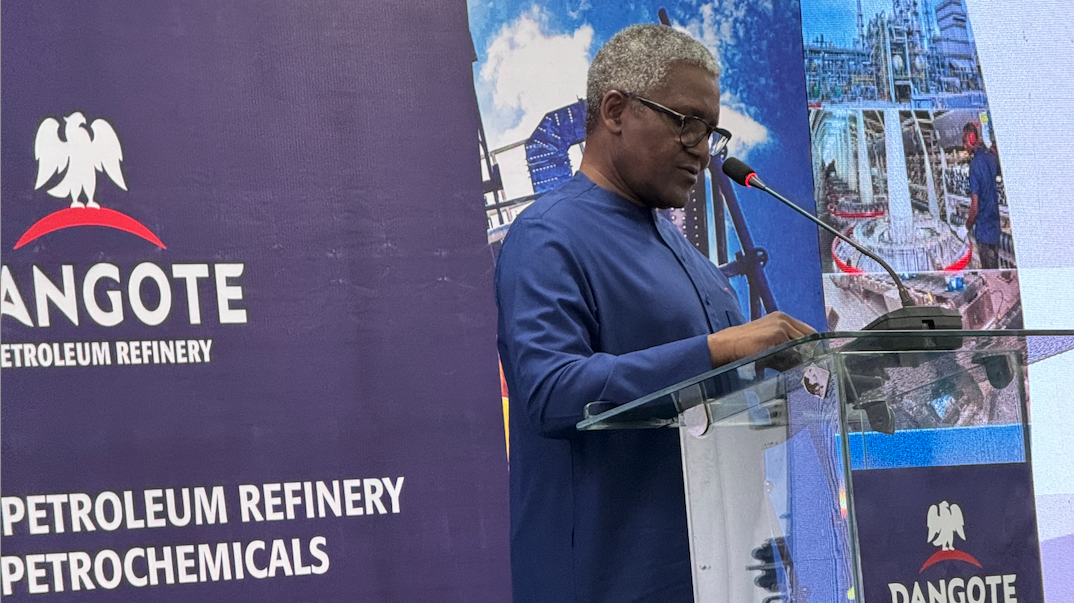Place your adverts here on InfoDig @ low rates; banner ads, sponsored links and guest articles etc. Contact us
Congratulations on your recent appointment, Mrs. Folasade Femi-Lawal. With your diverse background spanning financial services, telecommunications, and management consulting, what aspects of your previous roles do you believe have prepared you most for leading Mastercard’s operations in West Africa?
It is an honour to begin a new chapter at Mastercard, and I am excited to bring my expertise to the company. I believe my diverse background across the mentioned areas has equipped me with a unique set of skills and perspectives that will be instrumental in leading Mastercard’s operations in West Africa. During my time at PricewaterhouseCoopers (PWC), I developed a strong foundation in audit and business advisory services, honing my analytical and problem-solving skills in the process. This experience taught me the importance of attention to detail and compliance, skills that are crucial in the highly regulated payments industry.
Additionally, my tenure at the United Bank of Africa as the Head of the Loan Monitoring Unit provided me with valuable insights into managing a bank’s loan portfolio and ensuring regulatory compliance. This experience enhanced my understanding of risk management, a critical aspect of overseeing operations in the financial sector.
Transitioning to the telecommunications sector at Airtel Nigeria, I was able to leverage my financial acumen and passion for customer service excellence to drive operational efficiency and business growth. Working closely with the Chief Operating Officer, I implemented strategies that significantly improved market share and customer satisfaction, demonstrating and developing my ability to lead strategic initiatives in a complex and competitive environment.
Furthermore, my role as Chief Commercial Officer at Adonainet Group Nigeria enhanced my leadership skills as I spearheaded sales and distribution strategies that drove profitability and market penetration within a short period of time. This experience instilled in me a results-oriented mindset and the ability to innovate and adapt to changing market dynamics.
Finally, my most recent role as Head of Card & Messaging Business at FirstBank provided me with a deep understanding of the payments industry and the challenges and opportunities it presents. Managing over 11 million cards with a significant market share, I gained valuable experience in developing and executing successful card issuance and transaction strategies in a fast-changing landscape.
Overall, my diverse background has equipped me with the skills, insights, and strategic thinking necessary to lead Mastercard’s operations in West Africa. I am excited about the opportunity to drive our commitment to fostering innovation, expanding financial inclusion, and empowering individuals and businesses across the region through Mastercard’s cutting-edge digital payment solutions.
Mastercard is renowned for its commitment to driving digital innovation and financial inclusion. How do you plan to leverage your experience to further enhance these initiatives in the region, particularly considering Nigeria’s evolving payments landscape?
With Nigeria’s digital economy evolving rapidly, one key area of focus for us is investing in innovation by developing and scaling locally relevant digital solutions that address the specific needs of the Nigerian market and expand access to financial services in the process.
This includes solutions like our Digital First program, which ensures consumers have a seamless and secure digital payment experience; Mastercard Send, a secure cross-border money transfer service; a fintech program facilitating fintech access to our network, technology, and expertise; and Mastercard Start Path, a global startup engagement program that provides fintech startups with access to our global network of innovators that enables companies to scale, building the future of commerce.
Another important aspect of our strategy includes collaborations with financial institutions. These partnerships play a crucial role in issuing digital payment solutions ranging from digital wallets to supply chain finance, financial training, credit access, and innovative payment solutions and reaching the micro-retail segment. For example, our collaboration with the U.S. International Development Finance Corporation (DFC) provides up to $50 million in potential financing to enable digitization and financial inclusion in Africa, while our collaboration with Alerzo in Nigeria offers digital payment solutions and financial training to SMEs in the FMCG sector. Additionally, our recent collaboration with Access Bank Group is set to bolster financial inclusion across Africa significantly. The collaboration will see the bank tap into the capabilities of Mastercard Move to empower individuals and businesses to enjoy instant, traceable, seamless, and cost-effective international transactions.
We will also continue to champion financial inclusion and digitization through partnerships with telecommunications companies, leveraging their reach in remote and often underserved communities. For example, we have collaborated with MTN and Airtel to enable cross-border remittances and mobile money services for millions across the continent.
Traditional banks remain one of the fulcrums of our inclusion strategy and I am proud to say we have initiated transformative collaborations with key players in the sector over the last few months to address multiple stress areas. Earlier this year, we launched two innovative products in collaboration with Zenith Bank such as the Mastercard Naija Card and the World Elite Credit Card, to address the diverse financial needs of Nigerians across multiple social classes. Furthermore, in May, we launched an innovative solution in collaboration with Access Bank Group to expand access to instant, traceable, seamless, and cost-effective cross-border payments and remittances to and from the continent, bringing African businesses and consumers closer to the global economy.
Additionally, we are committed to investing in cybersecurity and data protection, employing advanced technologies to safeguard our platforms from fraud and cyberattacks. We collaborate with companies like Boost and Alerzo to extend benefits to SMEs and partner with the Committee of E-Banking Industry Heads for Nigeria (CeBIH) in Nigeria to conduct annual fraud forums, sharing best practices to combat fraud and cybersecurity threats plaguing the financial services industry.
You have been recognized for your dedication to fostering inclusive growth, particularly for women and children. How do you envision incorporating initiatives for empowerment and inclusion into Mastercard’s agenda in West Africa?
My dedication to fostering inclusive growth, particularly for women and children, has been a driving force in my professional and personal journey. Being recognized for this commitment through the awards I have received and the organizations I continue to support has only strengthened my resolve to continue making a positive impact in this area.
Incorporating initiatives for empowerment and inclusion into Mastercard’s agenda in West Africa is a priority for me which aligns with our core values and commitment to making a positive impact on society. One key focus area is digital inclusion, where we aim to bring more individuals and businesses, especially women who are traditionally underserved or excluded, into the digital economy.
To address the underrepresentation of women in STEM fields, we are leveraging our educational platform, Girls4Tech, to introduce girls in primary school to STEM. This initiative aims to cultivate a talent pipeline for the future workforce and has already impacted over 3.5 million girls in 60 countries, including Kenya, Nigeria, South Africa, and Morocco. We are committed to reaching five million girls by 2025, further narrowing the gender gap in STEM fields.
In addition to promoting inclusion, we are actively addressing critical social issues in West Africa. Our collaboration with Glovo, for example, aims to provide over 300,000 meals to schoolchildren in Nigeria and Kenya for an entire school year, addressing hunger and fostering education. This initiative encourages cardholders to contribute actively to eradicating hunger by making purchases through their cards, turning everyday transactions into opportunities for social impact. This initiative represents a first-of-its-kind effort in both East and West Africa, highlighting our commitment to sustainable solutions that benefit people and the planet.
In essence, our initiatives at Mastercard are not only driving financial inclusion but also addressing some of the most pressing social issues in West Africa. We believe that by empowering women and children and fostering inclusion, we can create a more prosperous and sustainable future for all.
Nigeria is moving towards a cashless society, driven by digital innovation. What role do you see Mastercard playing in facilitating this transition, and what challenges do you anticipate along the way?
Mastercard plays a pivotal role in facilitating Nigeria’s transition to a cashless society through digital innovation. As the country embraces contactless payments, Mastercard is at the forefront, leveraging its expertise and partnerships to drive this transformation.
One key area where Mastercard is making a significant impact is in the adoption of contactless payments. Our partnership with FCMB to launch a contactless Tap on Phone payment solution in Nigeria is a prime example. This innovative solution allows merchants to accept contactless payments using their Android smartphones or tablets, eliminating the need for separate hardware POS devices. This not only makes transactions more convenient for consumers but also helps businesses streamline their operations.
Additionally, our Tap-to-Pay service, in collaboration with ProvidusBank, Interswitch, and Thales Group, enables cardholders to make fast, secure, and convenient in-store payments by tapping their NFC-enabled smart devices at contactless-enabled payment terminals. This initiative not only enhances the customer experience but also promotes the adoption of contactless payments among merchants.
However, while contactless payments offer numerous benefits, several challenges still need to be addressed. These include the availability, accessibility, and affordability of contactless devices, the awareness and acceptance of customers and merchants, and the coordination and collaboration of various stakeholders. Mastercard is actively working to navigate these challenges through partnerships, education, and innovation, driving financial inclusion, promoting economic growth, and improving the overall quality of life for Nigerians in the process.
With your extensive experience in leadership roles, how do you intend to drive growth and navigate challenges in the dynamic West African market?
As a seasoned executive in digital transformation with a rich experience spanning over 25 years across various sectors including financial services, management consulting, telecommunications, and business advisory services, I am naturally equipped to lead Mastercard’s strides in the market in this new era of payments.
In navigating the dynamic West African market, Mastercard will continue to leverage its global presence, expertise and strategic partnerships across the public and private sectors to drive growth in key markets. We are uniquely positioned to advance inclusive growth in Africa, particularly in Nigeria, by providing access to networks, tools, and solutions that enable individuals and organisations to reach their potential and achieve financial security. We plan to continue partnering with private companies, government institutions, and development agencies to develop, incubate, and scale simple and locally relevant digital solutions that address the needs of the market.
One of our key initiatives is the Mastercard Start Path program, which provides later-stage fintech startups with access to our global network of innovators, enabling them to scale and shape the future of commerce. By nurturing and supporting these startups, we can drive innovation and growth in the region’s digital economy. Several fintech start-ups, including Duplo, Omniretail, NetPlus, and others, have already experienced significant benefits from this program.
Another critical initiative is the development of Community Pass, a shared interoperable digital platform that supports our commitment to connect one billion people to the digital economy by 2025. Community Pass addresses infrastructure challenges in digitizing rural communities, such as unreliable connectivity and low smartphone ownership. Through Community Pass, we are helping smallholder farmers across Sub-Saharan Africa access markets, financial services, and real-time pricing information.
However, we anticipate complexities in navigating the West African market, such as regulatory hurdles, infrastructure limitations, and the need to adapt to rapidly evolving consumer preferences. To address these challenges, we are continuously monitoring regulatory changes to ensure compliance and are partnering with public bodies to drive innovation, especially as it concerns cybersecurity, open banking, and contactless payments.
Could you elaborate on Mastercard’s vision for the future of payments in West Africa, and how it aligns with the Nigerian government’s agenda for developing a secure digital economy?
At Mastercard, we anticipate witnessing innovative changes that will give rise to a ‘new economy’ that will redefine the concept of money, introduce new asset exchange methods, offer intelligent solutions that span physical as well as digital environments, expand inclusivity and sustainability principles, and transform how companies build products. In Nigeria, especially, our vision for the future of payments aligns closely with the Nigerian government’s agenda for developing a secure digital economy. As a leader in championing financial inclusion and digitization across Africa, Mastercard recognizes the region’s immense potential for growth and transformation in the payments ecosystem.
In line with the Nigerian government’s National Digital Economy Policy and Strategy (NDEPS), which aims to transform Nigeria into a leading digital economy, Mastercard is committed to providing quality life and digital economies for all. However, several key trends are shaping the future of payments in West Africa, promising a dynamic shift in how transactions are conducted. The African domestic e-payments market is on an upward trajectory, with revenues projected to grow by approximately 20 percent per year, reaching $40 billion by 2025. This growth is fueled by factors such as increased access to mobile technology, a burgeoning middle class, the rise of e-commerce, and the widespread adoption of digital payments.
Traditional banks remain one of the fulcrums of our inclusion strategy and I am proud to say we have initiated transformative collaborations with key players in the sector over the last few months to address multiple stress areas. Earlier this year, we launched two innovative products in collaboration with Zenith Bank such as the Mastercard Naija Card and the World Elite Credit Card, to address the diverse financial needs of Nigerians across multiple social classes. Furthermore, in May, we launched an innovative solution in collaboration with Access Bank Group to expand access to instant, traceable, seamless, and cost-effective cross-border payments and remittances to and from the continent, bringing African businesses and consumers closer to the global economy.
Regulatory shifts are also playing a significant role in shaping the future of payments. Many countries in Africa are adapting regulations to permit digital KYC processes with biometrics and facial recognition, licensing new PSPs, and approving innovative payment methods like QR codes and contactless payments. For example, in Nigeria, the Central Bank of Nigeria (CBN) recently released the Guidelines on Contactless Payments in Nigeria to establish minimum standards and requirements for the operation of contactless payments within the country. The guidelines aim to ensure that participants in contactless payments implement appropriate risk management measures while keeping to the best industry standards. In response to these guidelines, we are accelerating the adoption of contactless payments through our innovation and collaborations with traditional banks and fintechs.
We are also initiating collaborations and leveraging our capabilities to create innovative AI-led solutions that enhance and secure both the consumer-facing and operational sides of the payment industry. As the world becomes increasingly interconnected, we believe that payments will also evolve in this direction, giving rise to more regulations to guide their implementation and more initiatives to drive penetration in line with these regulations. True to our commitment, we remain at the forefront of shaping the future of payments in the region. By collaborating with like-minded partners – leveraging Mastercard’s expertise, insights, and solutions – we aim to forge pioneering and scalable commercial solutions that will unlock immense value. Additionally, we will continue to align our strategies with emerging trends and policies to foster financial inclusion and economic growth.
Beyond professional endeavours, you enjoy singing, writing, and spending time with family. How do you balance your interests with the demands of your professional role, and do you find any parallels between your passions and your approach to leadership?
Balancing my interests with the demands of my professional role is something I’ve learned to prioritise over the years. I find that setting clear boundaries and creating a schedule that allows time for both work and personal activities helps me maintain a healthy balance. For example, I dedicate specific times during the week to my hobbies, such as singing and writing, and make sure to spend quality time with my family regularly.
I also believe that my passions greatly influence my approach to leadership. Just as in my personal life, I strive to create harmony and balance in my professional interactions. I value creativity and use it to find innovative solutions to challenges. Additionally, my love for spending time with family has taught me the importance of building strong relationships and fostering a sense of community within my team and with key industry players.
Furthermore, I have a personal commitment to fostering inclusive growth and empowerment, particularly for women and children, as evident through my extensive philanthropic endeavours and mentorship roles with organizations like Women in Management, Business and Public Service (WimBiz), the United States, White House Initiative – Academy for Women Entrepreneurs (AWE), FirstBank Women Network and Single Mums Global Initiative (which seeks to address the stigma associated with single mothers globally). This passion naturally aligns with my professional mandate to accelerate financial inclusion across the region.







)

)





 English (US) ·
English (US) ·